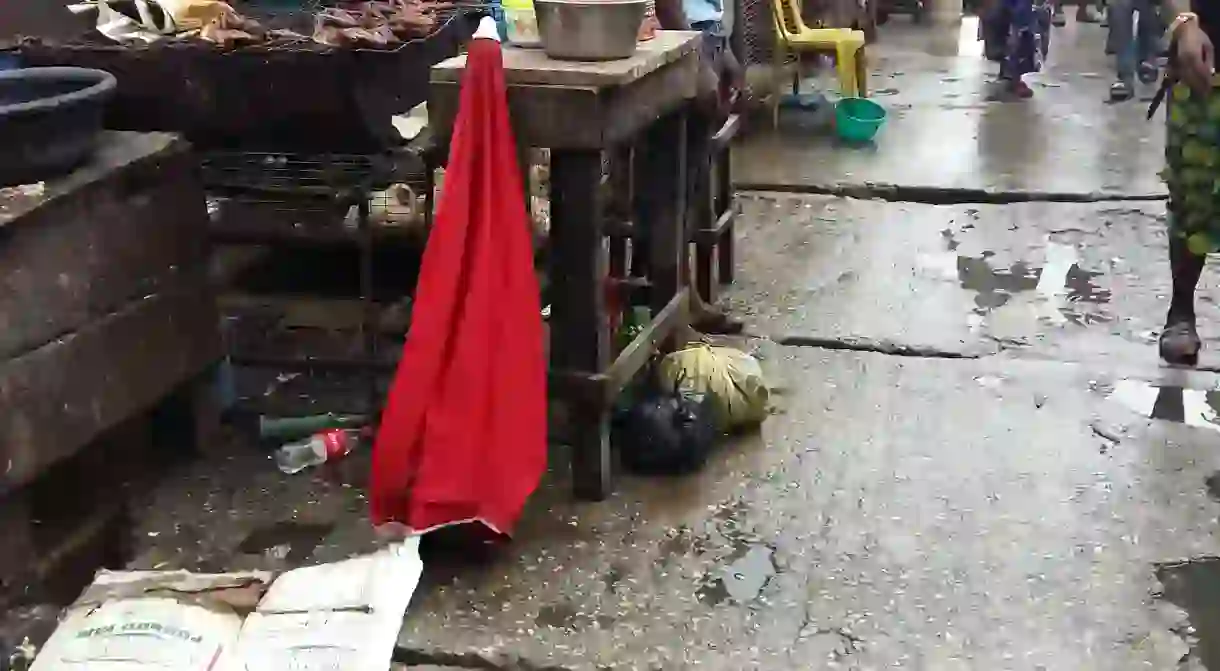The Essential Guide To Lagos' Jankara Market

There are various fascinating aspects to the Jankara Market in Idumota, Lagos Island, Lagos. One aspect is its long-standing reputation as one of the most popular markets in the megacity, even after around 39 years of existence; offering herbs (agbo), poultry, food items, clothing, craftwork, and other household/common can be found within its coverage on and off Ojo Giwa and Idumagbo Streets.
This popular market, like some others in Lagos State, has withstood the tests of man-made disasters and demolitions. Most of the traders remain and devise innovative ways to continue to serve the needs of visitors. Some traders have been there for a decade or more at a stretch while others operate intermittently and return to establish new stalls at different times.

To get to Jankara Market, travel either through the Carter, Third Mainland, or Eko Bridges to get to Idumota area. After arriving, stretches of interwoven streets crowded with people and lined with stalls—usually organised in sections by types of items sold—greet you. It is imperative to continue to ask for directions, especially after covering some ground, in order not to get lost or wander into the other markets surrounding Jankara unless exploring is on the agenda.
Standing at the T-Junction from Iga Idunganran Street are some of Jankara’s finest clocks and wristwatches stalls/shops. A right turn leads further into ‘clock-land’ while a left turn presents the choice of stalls to purchase other commodities.

The main Jankara Market buildings were razed in 2012 by a fire accident, and a ring of steel sheeting now surrounds the former location. However, traders have taken advantage of the immediate environment to carry on with the selling of their craft, poultry, produce, food stuff and condiments, home appliances, spare parts, and more. The demolition also displaced the tie-dye textile traders (most of whom have reportedly relocated to the Jakande Market in Lekki) who provided a key source of attraction for visitors with their activities, as well as the herbs and potions and crafts dealers, who moved further inward, away from their former site.

Paying a visit to the intriguing herbs and potions section is usually high on the to-do list of visitors to Jankara Market. Before getting to the location that houses the herbs and potions dealers (awon alagbo)—and also the aso-oke and beads traders—visitors will pass through the famous poultry stalls in Jankara. Sellers display live chickens and turkeys in cages for buyers to select from. On that same line, buyers can also choose to defeather their poultry and chop them up, take them away live, or have a taste of the kind of meal they might be in for by purchasing barbecued chicken from nearby stands.

The journey continues on into the area with herbs (and charms, according to some). Be careful because getting to this next stop requires traveling over a good distance of muddy ground mixed with coal from the nearby coal stalls. Thus, one tip to bear in mind: try to plan visits to Jankara in drier seasons or dress accordingly.

A variety of herbs are arranged neatly inside and in front of the stalls along with the calabashes used in the mixture of some of them. The use of the potions derived from the herbs range from ceremonial rites to curing of ailments. Next to the enchanting stalls are others spotting elaborate aso-oke materials and handmade beads ready for purchase and wear.

When planning to visit Jankara Market, visitors must be ready to spend a minimum of one hour sightseeing and window-shopping, though actual shopping can cost as much as three to four more. The market operates Mondays to Saturdays from around 8am-6pm.













